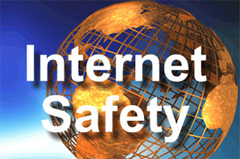Achieving global nuclear disarmament is one of the oldest goals of the United Nations. It was the subject of the General Assembly’s first resolution in 1946. It has been on the General Assembly’s agenda along with general and complete disarmament ever since 1959. It has been a prominent theme of review conferences held at the UN since 1975 of States parties to the Nuclear Non-Proliferation Treaty. It was identified a priority goal of the General Assembly’s first Special Session on disarmament in 1978, which attached a special priority to nuclear disarmament. And it has been supported by every United Nations Secretary-General.
Yet today, some 16,000 nuclear weapons remain. Countries possessing such weapons have well-funded, long-range plans to modernize their nuclear arsenals. More than half of the world’s population still lives in countries that either have such weapons or are members of nuclear alliances. As of 2015, not one nuclear weapon has been physically destroyed pursuant to a treaty, bilateral or multilateral, and no nuclear disarmament negotiations are underway. Meanwhile, the doctrine of nuclear deterrence persists as an element in the security policies of all possessor states and their nuclear allies. This is so—despite growing concerns worldwide over the catastrophic humanitarian consequences of the use of even a single nuclear weapon, let alone a regional or global nuclear war.
These facts provide the foundation for the General Assembly’s designation of 26 September as the International Day for the Total Elimination of Nuclear Weapons (A/RES/68/32). This Day provides an occasion for the world community to reaffirm its commitment to global nuclear disarmament as a high priority. It provides an opportunity to educate the public—and their leaders—about the real benefits of eliminating such weapons, and the social and economic costs of perpetuating them. Commemorating this Day at the United Nations is especially important, given its universal membership and its long experience in grappling with nuclear disarmament issues. It is the right place to address one of humanity’s greatest challenges, achieving the peace and security of a world without nuclear weapons.
Source: un.org





